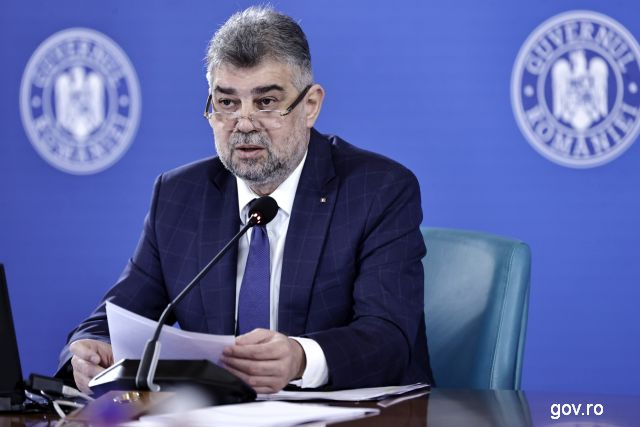Tax and budget-related measures
The government once again tries to cut down public sector expenditure

Bogdan Matei, 31.10.2023, 13:50
The budget deficit remains one of the weaknesses of the Romanian
public administration, and the government made up of the Social Democratic
Party and the National Liberal Party promises to remain strict in terms of
public spending. The Cabinet has taken responsibility for a set
of measures aimed at reducing waste by restricting procurement, reducing
executive positions and merging public institutions, scrapping some tax
facilities, fighting fraud and tax evasion.
Moreover, as of November 1, a new emergency order takes effect,
concerning year-end expenditure. The order introduces restrictions for public
institutions and local administration units, including with respect to the organisation
of festivals and competitions. Authorising officers may no longer contract
office supplies and other goods and services used in maintenance and repair works.
The finance minister Marcel Boloş says that in the past, in November
and December expenses with goods and services were two, three or even four
times higher than in other months, which is why the Cabinet decided that such
expenses must not exceed the average level of the first 10 months of the year.
The order also stipulates that payment of the salary rights for
which public sector employees have won lawsuits will be postponed to 2024. The
Social Democratic PM Marcel Ciolacu promises however that there are no reasons
to worry and that the government has enough funds to cover salaries and other
expenses, and pension benefits will be raised by 13.5% as of January 1, 2024 to
cover inflation.
The new measures were taken by the government after last week the
European Statistics Office (Eurostat) announced that Hungary (6.6%) and Romania
(6.3) are the countries with the highest budget deficit of the 27 EU member
states.
Also last week, during talks regarding the European Union budget,
the president of Romania Klaus Iohannis called for rethinking the way in
which budget deficits are determined. At the European Council meeting in
Brussels, the Romanian president said the new EU budget should meet current
challenges, such as the support for Russia-invaded Ukraine, the security crisis
in the Middle East and the drop in the competitiveness of the EU economy.
The request comes after, for 3 years in a row, Romania exceeded
the budget deficit agreed on in the Stability Pact, the EU instrument that compels
member states to keep their budget deficits within sustainable limits, so as
not to lead to macro-economic imbalances. Iohannis also asked for the budget
revision not to affect the agriculture and cohesion allocations, the two major
directions through which the EU is financing Romania’s development. (AMP)






























